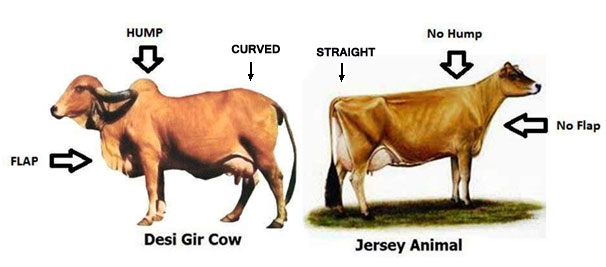What Is Milk Protein Variation?
Milk protein variation refers to the differences in beta-casein proteins found in cow milk. Milk is composed of about 87 percent water and 13 percent solids, which include fat, carbohydrates (primarily lactose), minerals, and proteins. The main type of milk protein is casein, and beta-casein makes up about 30-35 percent of the casein content in milk (roughly two teaspoons per liter).
Beta-casein has several forms, which are determined by the genetic makeup of the cow. The two most common forms are found in different proportions depending on the herd, country, and region. Indigenous cows in Africa and Asia typically produce milk with only one form of beta-casein, while in many western countries, including Europe (excluding France), the USA, Australia, and New Zealand, the other form is more prevalent.
What Are the Benefits of Indian Cow Milk?
Milk from native cows offers significant benefits for the body, mind, and soul. It is a rich source of calcium, protein, and fat. This natural milk, produced by Indian breeds cows, is easier to digest and supports immune health. It is often referred to as "stomach-approved" milk due to its ability to aid digestion and help combat various diseases. Many people have reported improvements in digestive issues, diabetes, and cholesterol levels after switching to this type of milk.
What Types of Cow Produce This Milk?
Cows have been domesticated for centuries, with Mother Nature selecting breeds suited to specific regions. Unfortunately, modern practices have often overlooked or eliminated native breeds. Traditional Indian breeds such as Gir, Sahiwal, Red Sindhi, and Tharparkar are known for their resilience to diseases and for producing milk with higher protein content.
How To Identify Indigenous (Desi) Breed Of Cows?
Desi cows have a distinct hump, curved back and a flap on the neck while HF/Jersey cows do not. This is the easiest way to identify a Desi cow.

How it works?
Step 1: Collecting Milk Directly From Farms
We have shortlisted few farms who cattle only Desi cows and maintain healthy conditions for them. We select farms after various inspections of the hygienic condition of the farms and health conditions of the cows. We keep a stringent check on the cattle quality, fodder and processes at the farm. Samples of our milk are regularly checked for any trace of chemicals, pesticides or toxins. Once we feel no check point is missed, we procure milk.
Step 2: Pasteurization & Packaging
After collection the milk is been transported to our processing plant at the earliest to maintain the quality of raw milk. We pasteurize the milk with our advanced machines to provide best quality milk and other by products without getting the nutrients killed. The milk is then packed in a biodegradable Poly pack and made ready for delivery.
Step 3: Delivery
The milk is packed below 2 Degrees to maintain the nutrients and freshness of the milk. The same is delivered every morning.
Step 4: Test Reports
The milk available in the market is typically checked for FAT/SNF content and adulteration. Apart from these we also conduct some complex tests on hormonal and pesticide residue presence in the milk. These tests will be done on regular basis and the test results will be shared with the customers time to time and also be published on our website. 00
